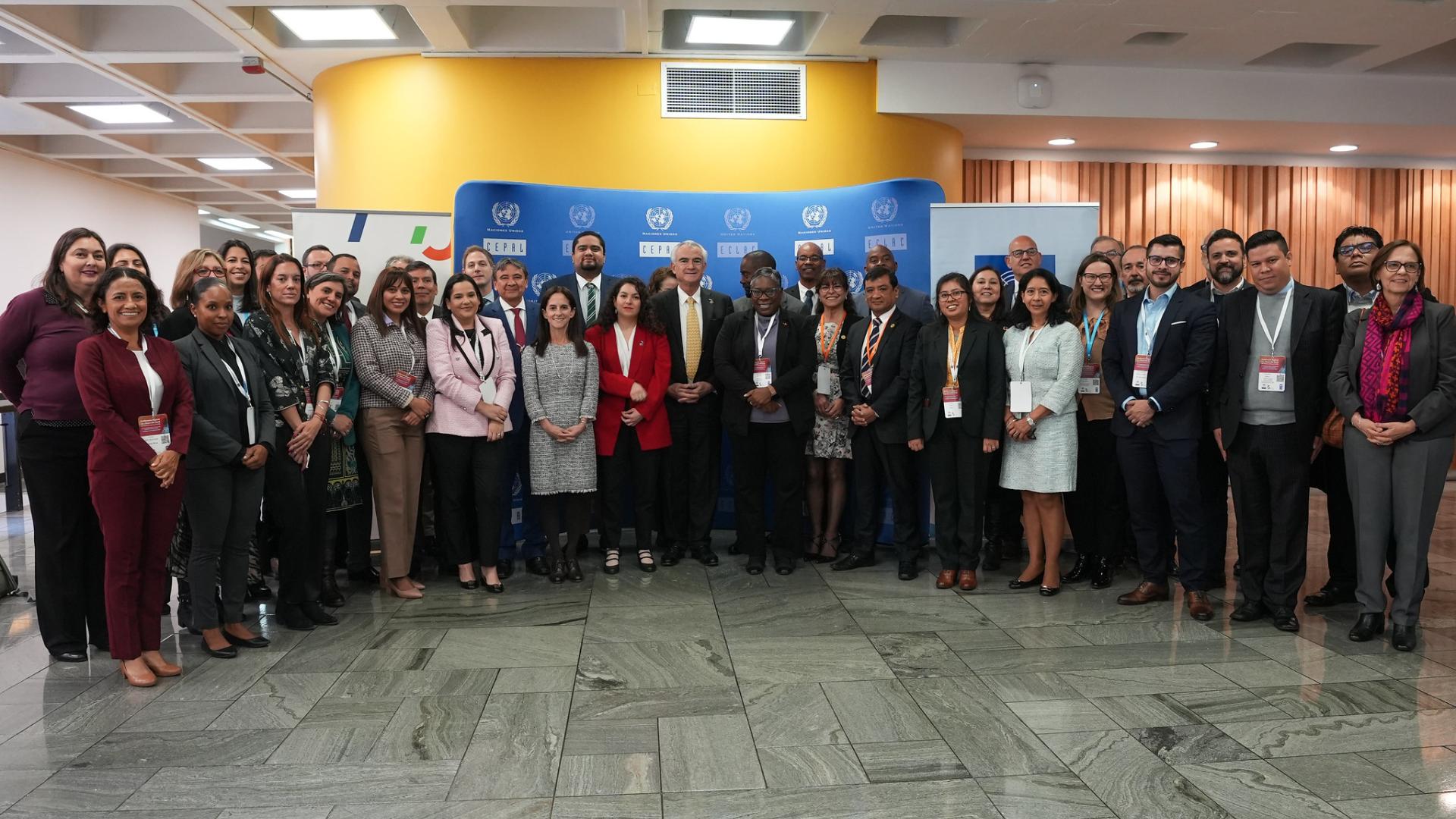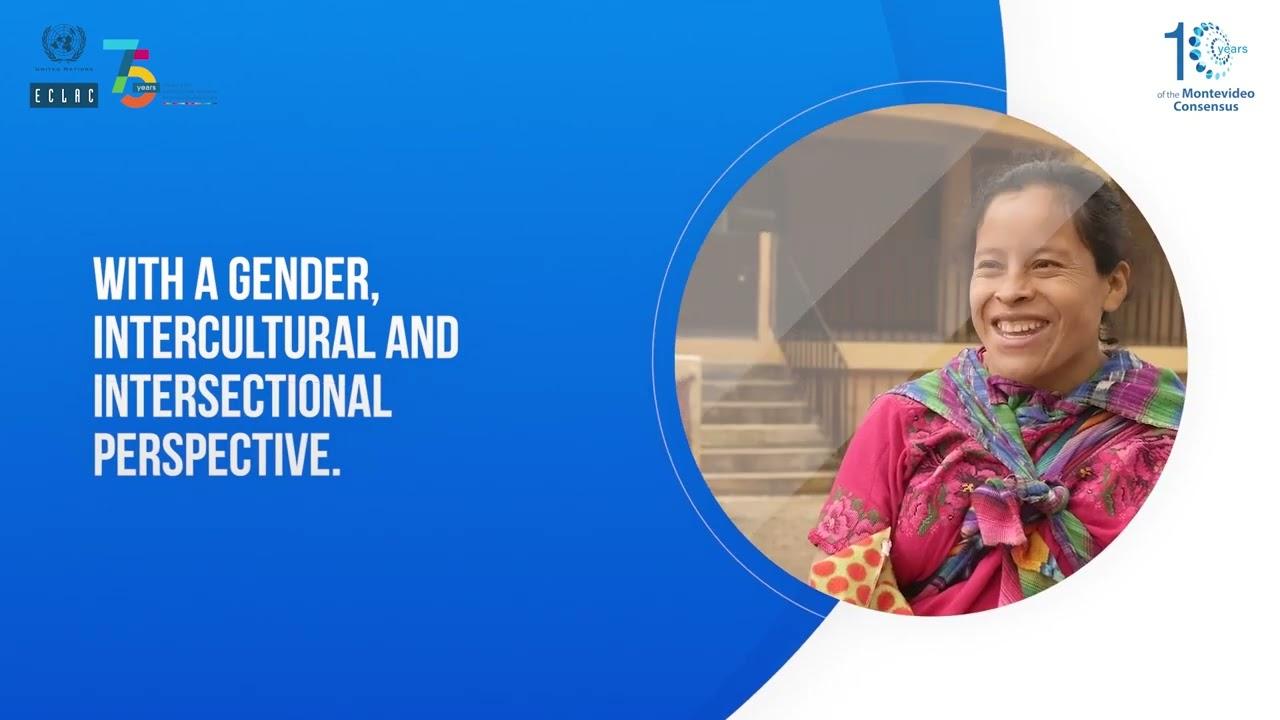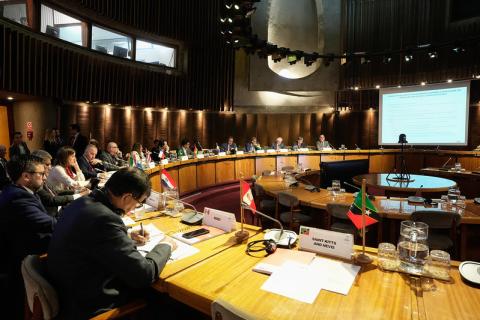Briefing note
The Executive Secretary of the Economic Commission for Latin America and the Caribbean (ECLAC), Alicia Bárcena, stressed today the importance of seeing equality as a driver of growth after the crisis stemming from COVID-19, not just for countries but also companies and businesses, during a high-level event that brought together the main executives of important companies and business leaders from the Americas and other regions of the world, and which was held on the sidelines of the 75th session of the United Nations General Assembly.
The gathering entitled “A conversation with CEOs & Leaders - SDG 10 Reduce inequality within and among countries, the role of the private sector” was organized by the Private Sector Regional Center for support of the United Nations Sustainable Development Goals, an entity located in Bogotá (Colombia) and affiliated with the United Nations Institute for Training and Research (UNITAR). It convened top executives for the Americas from companies such as Walmart, Enel, Grupo Hame, PMI America, Maala, Cementos Argos, Makro, BMF Investments, the United States International Development Finance Corporation and the Inter-American Dialogue, among others.
In her remarks, Alicia Bárcena recalled that inequality defines Latin America and the Caribbean and conspires against prosperity, political stability and good business. She explained that the COVID-19 crisis has had a disproportionate impact on the region, above all on the most vulnerable groups: income inequality will increase by 5%, and less than 1% of the population concentrates the region’s wealth, she stated.
In addition, there is a high degree of fragmentation in social protection and access to health, and a wave of social protests erupted in several countries in 2019, revealing frustration with the status quo and with growing inequality, she said.
“We have to avoid emerging from this crisis being poorer, more unequal, more hungry and angry. Therefore, we need a change of culture and to see equality as a driver of growth, not as a result of it,” she emphasized.
Addressing the businesspeople and leaders, Alicia Bárcena sustained that today there is an imperative need for a social compact that ensures access to health and basic services, especially water and electricity. “We have come to understand that the infrastructure of life is the most important thing in this pandemic: health, water, electricity,” she underscored.
In the short term, ECLAC’s Executive Secretary explained that four urgent measures are needed: to inject liquidity, especially into micro and small enterprises; co-finance company payrolls for at least six months, to avert the destruction of capacities and of the productive structure; make direct cash transfers to independent workers; and give government support to big companies in strategic sectors that have been seriously harmed by the crisis, since they are the ones that provide innovation and technology. This support must be reciprocated by the companies, meaning they must commit to engaging in fair labor practices, not distributing profits among their shareholders or investing in tax havens.
In the long run, Alicia Bárcena said that business models and corporate practices must be adapted to ensure greater resilience and competitiveness, in line with the United Nations’ 2030 Agenda for Sustainable Development and the Paris Agreement on climate change.
In addition, she identified four sectors that are crucial: the energy transition, to move away from fossil fuels; the creation of agroecological pacts and bioeconomy, to include nature-based solutions; the digital transition, to close the gap of 40 million households that still have no access to Internet in Latin America and the Caribbean; and the urgency of fostering public-private collaboration to increase the formalization of workers and social protection.
Bárcena also stressed the importance of including development banks and financial institutions, both national and international, so they can promote new financial vehicles, tools and platforms that include pension funds and sovereign wealth funds.
“The world is changing faster than ever. Governments, businesses and academia, we need to collaborate if we are going to succeed on the global challenges with sustainability, equality, trust and prosperity for all,” she concluded.



